Grace Wei’s Journey from Academia to Encellin Co-Founder and Entrepreneur
Making the leap from academia to company founder requires an appetite for risk and the ability to learn quickly. Grace Wei, Ph.D., who founded Encellin in 2016 with co-founder Crystal Nyitray, Ph.D., shared some of her lessons during a recent Innovation Centre Denmark, Silicon Valley presentation for would-be biotech entrepreneurs.
Encellin began with the goal of developing a new therapeutic for chronic diseases like diabetes and certain metabolic errors. Rather than treat disease with medicine first and use transplants as a last resort, Wei and Nyitray wanted to transform transplant technology so it would be physicians’ first choice, halting disease before it advanced. To do that, its team of experts in engineering, medicine and biology developed ultra thin-film nanopore membranes that encapsulate the transplanted cells and hold them in position within the body, thus relieving the challenge of graft rejection.
A review of Encellin’s history shows a steady progression.
Early in the company’s first year, Wei said, “We brought on a business advisor with big pharma experience who met with us weekly. We picked his brain and learned the language of business.”
At the same time, they interviewed intellectual property (IP) lawyers, selecting – and being selected by – one of Silicon Valley’s best.
“Working with a top name gives you street cred,” Wei said.
It was possible for a startup because at that level, the top experts care less about making more money than about doing something interesting that contributes to society.
One year along, Encellin joined an accelerator sponsored by the California Life Sciences Institute.
“Its model is to make sure you have a great board of directors. Some companies have 3 to 5 people. We have 12, so we have representation across many different disciplines, including areas that are unfamiliar to us,” Wei said.
The challenge was bringing everyone up to speed in terms they all could understand.
The next year, in 2018, Encellin joined the Stanford Accelerator despite having no history with Stanford.
“That accelerator believes in founder-to-founder connections. There’s a brotherhood code among founders. If you have questions and reach out to other company founders, they will make time for you, advise you, and help connect you to other people,” Wei said.
Often they can ask questions of potential investors that seem too awkward for you to ask yourself, she said.
In 2019, Encellin joined the Y Combinator, the seed money startup accelerator that helped start Airbnb and Dropbox.
“It’s difficult to get into, but shoot for it. Don’t be afraid of rejection,” Wei said.
The Y Combinator experience helped the company quickly double its funding.
Now Encellin is building out its team and plans to begin its first clinical trial in 2021.
Throughout this experience, Wei said three key lessons have emerged:
Have savings. Think early about expenses and develop a runway but, Wei cautioned, “Don’t skimp on lawyers. Attorneys may defer their fees for one year or until the company raises $1 million.”
Find a friend for the journey. “I don’t mean a personal friend,” she clarified. “A lot of stressful things happen, and family and friends don’t have the same emotional investment. Having a co-founder can alleviate much of the stress, as well as tag-team negotiations.
Your network is everyone. Wei met her business advisor, now chairman of the board, because of a chance encounter with his wife at a parent’s event at the school their children attended. Before agreeing to work together, she said, “He reviewed our science and our business plan, and we asked for his references. Perform due diligence as if you are a big player. People respect that.
Networking is a learned skill that improves with practice.
“Coming from academia, we tend to talk deeply about one subject, so networking with random people is new. It’s awkward at first,” Wei said.
She recounted spotting football legend Joe Montana standing alone at an investor event.
“I don’t know football or what he’s invested in, but I walked over and said, ‘nice tux…and sneakers.’ He started talking and asked what we do,” Wei said.
As with meeting Joe Montana, a fair amount of luck inevitably is involved, Wei said.
“An acquaintance who doesn’t invest in our area offered to help us work on a pitch over coffee. There were no small tables, so we sat at a large one,” Wei said. “A guy at the other end overheard our conversation and eventually asked for our business card.”
That bit of serendipity helped connect her with a family venture fund, a leading medical device developer, and the CEO of a pharmaceutical company, which landed the company a significant research contract.
The moral of the story, Wei said, is “Don’t discount luck.”
Source: BioSpace
